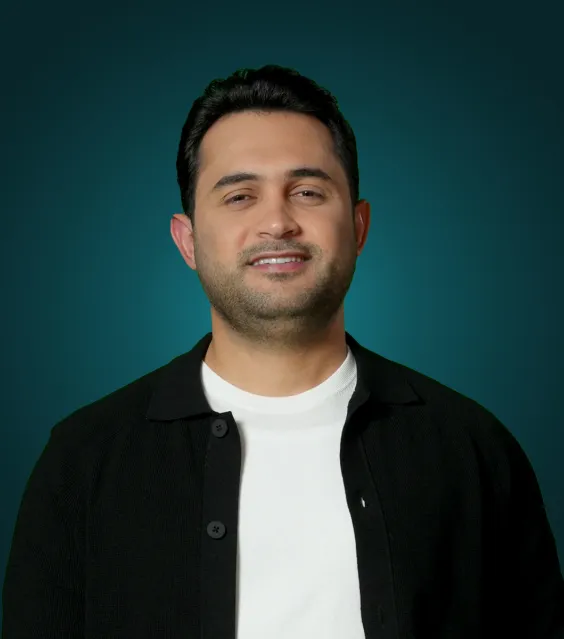Season 17 Innovators
Back to innovators
Khaldoun Megdady

About
At just 29, Jordanian inventor Khaldoun Megdady has joined Stars of Science season 17 with a deeply personal mission—to advance cardiac care through cutting-edge technology. What sets his journey apart isn’t just the innovation, but the unexpected path that brought him here.
Megdady began his academic journey in architectural engineering at Yarmouk University in Jordan. Instead of following a traditional path, he made a bold leap, later earning a master’s in computational Neuroscience and Cognitive Robotics from the University of Birmingham in the UK.
Raised in a household of medical professionals—his father a biologist, and his four brothers all doctors, including a cardiologist—Megdady grew up surrounded by clinical conversations and compassion. According to Khaldoun, the heart was always at the center of those conversations.
That mix of emotional insight and scientific curiosity became his foundation. He notes that engineering gave him the tools to execute ideas, while neuroscience provided the biological knowledge. When faced with a medical problem, he says he can solve it like an engineer.
As a Building Information Modelling Coordinator, Megdady worked on creating 3D replicas of buildings using digital twin technology. He recalls that during his thesis, which used brain imaging to understand how autistic patients respond to space, he had a turning point. It was then that he realised he didn’t want to just design buildings—he wanted to design change.
About the Project
Megdady’s invention—a digital twin of the coronary artery system—creates a real-time, 3D model of a patient’s heart using AI and deep learning. The system combines Optical Coherence Tomography (OCT), Finite Element Analysis (FEA), and Computational Fluid Dynamics (CFD). This aims to allow surgeons to simulate procedures like stenting or ballooning before the actual operation.
For him, it’s personal. His brother, a cardiologist, often faces the pressure of making life-saving decisions with limited tools. In Jordan and across much of the Middle East, access to advanced planning technology is limited—and lives are lost because of it. According to Khaldoun, this invention isn’t a luxury—it’s a necessity that could save lives in the region.
If successful, the system could become standard practice—especially in hospitals with limited diagnostic resources. With heart surgeries considered high-risk, the global potential is immense.
The Impact
“Heart disease is the leading cause of death worldwide. Many of those cases are due to coronary artery disease. And the numbers keep rising,” says Megdady.
By helping doctors, especially in their early career phases, simulate multiple treatment options before operating, his system reduces uncertainty and improves patient safety.
Determined to succeed no matter the weather, with the support of Stars of Science mentors and judges, Megdady’s journey is more than just a competition. It’s a mission to save lives.
